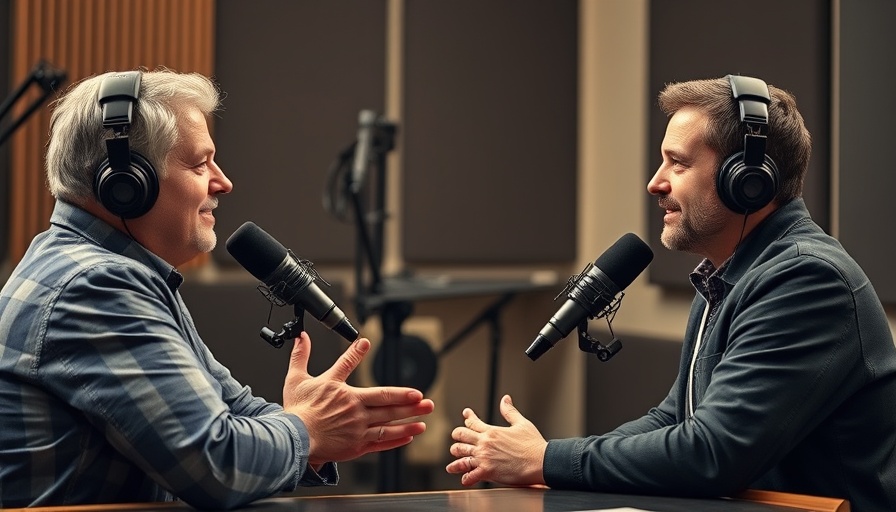
The Vital Role of Testosterone in Women’s Health
Testosterone is often perceived as a male hormone, but it plays a crucial role in women's health as well. As Dr. Rachel Rubin emphasizes, testosterone is integral to women's sexual health and overall well-being. Many women experience a decline in testosterone levels as they age, particularly during their 30s and into menopause. This hormonal shift can lead to a range of health difficulties, including decreased libido, increased risk of urinary tract infections (UTIs), and even mental health challenges like anxiety and depression.
In 'Testosterone for Women: Myths, Truths, and Real Benefits,' the discussion dives into the critical role testosterone plays in women's health, prompting us to analyze its broader implications.
Understanding Hormonal Changes Through the Ages
Women are often taught that their hormonal health is strictly governed by estrogen and progesterone, which leads to considerable misinformation. In fact, as Dr. Rubin notes, women have ten times more testosterone than estrogen at certain life stages, particularly around ovulation. This misunderstanding can lead women to overlook their testosterone levels, creating an imbalance that can have profound effects on their health and quality of life.
The Impact of Birth Control on Testosterone Levels
Another critical factor in women's hormonal health is the use of birth control. While birth control pills are commonly prescribed to regulate menstruation, they often do not account for the important role of testosterone. Birth control will turn off the ovaries and does not replace testosterone, which exacerbates the decline that begins in a woman’s 30s. Understanding this connection underscores the importance of addressing testosterone levels as part of a comprehensive approach to hormone therapy.
Debunking Myths Around Testosterone Therapy
There is a pervasive myth surrounding testosterone therapy for women, often associated with misconceptions about virilization (the development of male physical characteristics). Dr. Rubin dispels these fears by sharing notable examples, including stories from celebrities like Halle Berry and Kate Winslet, who benefit from testosterone therapy without losing their femininity. This highlights the need for open dialogue and education on testosterone's health benefits, which are often overshadowed by fear and misinformation.
Addressing Common Concerns and Side Effects
When discussing testosterone therapy, many women express apprehension about potential side effects. Dr. Rubin reminds patients that the most common side effects, such as acne or oily skin, are manageable and should not deter them from seeking hormonal balance. Even when patients are prescribed doses lower than male testosterone therapy, they often report feeling more like themselves, reclaiming their energy and vitality. This reinforces the importance of personalized care and a tailored approach to hormone therapy.
Testosterone Therapy: A Key to Holistic Wellness
Understanding the importance of testosterone in women’s health opens the door to a holistic approach to wellness that transcends traditional methods. By recognizing the role of testosterone alongside estrogen and progesterone, women can achieve a better balance, leading to improved sexual health and overall vitality. It is essential for healthcare providers to stay informed and equipped to offer comprehensive hormone therapy options.
The Path Forward: Advocacy and Awareness
As awareness grows around the benefits of testosterone therapy in women, it becomes increasingly important for both patients and providers to advocate for more research and clarity in hormonal health. With ongoing societal and medical stigmas surrounding women’s hormones, fostering a supportive environment where women can explore all hormone options will empower them to make informed health decisions.
 Add Row
Add Row  Add
Add 




 Add Row
Add Row  Add
Add 


Write A Comment